We are wading back to the anchored skiff
after and slowish morning on the sand-flats, when our guide stops, crouches,
and points urgently into the shallow sea. Out goes James’s fly-line, the little
shrimp pattern pitches down, a silvery fin wags briefly above the surface. his
rod bucks and the reel begins to whizz like a dentist’s drill - it has taken
more than 20 years for this to happen, but finally my son has evolved into Homo
piscatorius.
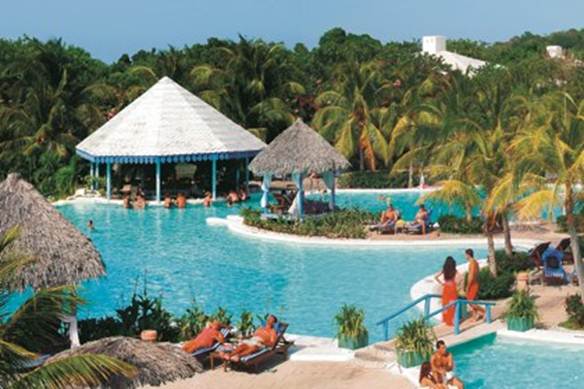
The
Mojito Coast
For our first-ever fishing safari together,
I had little hesitation in choosing Cuba. Of the 30-odd countries where I‘ve
swum my hooks, this is the one I have most revisited: its maritime wildernesses
have only recently been opened up to sportsmen, and it’s as offbeat and funky a
destination as any I know.
This is my ninth trip, but for the first
time we are bypassing Havana entirely; instead, the itinerary begins in the
provincial city of Holguin. Holidaymakers who jet in to the capital or one of
the seaside resorts seldom see just how big an island this is (Cuba has some
5,000 miles of coastline and the Caribbean’s only railway system), but our
four-hour charabanc drive northwards through the heartlands of Las Tunas and
Camagüey also reveals how lush it can be. We speed past citrus orchards, walnut
groves and rolling dairy pasture green and pleasant enough to he in parts of
Devon — if you leave out the turkey buzzards and those cheery billboards
advertising ‘Socialismo o Muerte’.
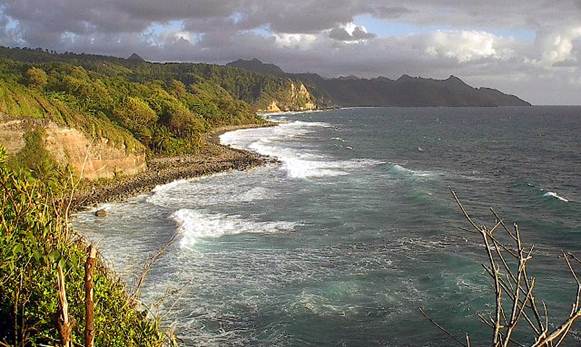
Cuba
has some 5,000 miles of coastline and the Caribbean’s only railway system
They don’t see many tourists in the
sugarcane township of Brasil, our home for the coming week. Stately matrons
stop and stare from beneath nylon parasols as our bus descends the slip road,
where rice has been strewn to dry along the verge. The outskirts are a
disconcerting jumble of Bulgarian-style concrete tenements, cactus-fenced
fields, and frangipani. The refinery has been mothballed, and we are staying at
La Casona, the former manager’s house — an elegant colonial-style building
facing the civic square. The rooms are spacious enough (one had its own bar,
where we held an impromptu cocktail party), but essentially ramshackle. Several
of the shower heads deliver electric shocks; there is only one remote control
between all the air-con units in the place: and if you found something on your
pillow it wasn’t going to be a chocolate. But we had come for some hardcore
angling action, not spa treatments: we were ready to kick some fin!
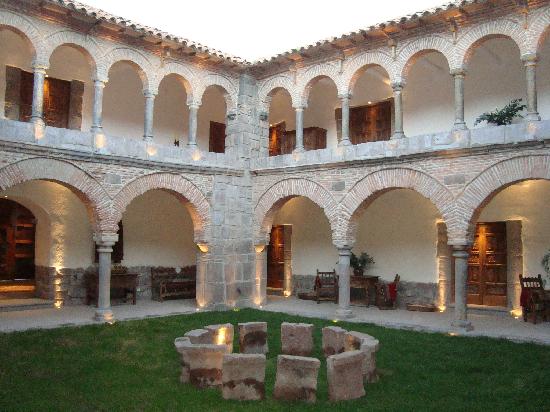
The
refinery has been mothballed, and we are staying at La Casona, the former
manager’s house — an elegant colonial-style building facing the civic square.
A 40-minute commute north lies Cayo Romano,
several hundred square miles of largely uninhabited mangrove islands in a
restricted zone where just a few tourist boats are allowed each week. Although
backward in some departments (human rights and plumbing spring to mind), Raúl
Castro’s regime is keen on its nature reserves: this one is protected by a
military checkpoint, partly for the benefit of the turtles and ibis population,
hut also to prevent local citizens accessing that geopolitical gulf that leads
to Florida, and freedom. As a result, there is abundant marine life, and
minimal angling pressure. Fifteen years ago, I was in one of the first groups
to explore a similar region off Cuba’s southern coast (the Jardines de la
Reina), and the sport there was truly outstanding. But such places can soon be
spoiled by over-development The popularity of flats fishing’ — the light-
tackle pursuit of shallow-water species such as bonefish and tarpon — is
growing every year, and has caught on from Christmas Island to Venezuela. So,
if you’re looking for somewhere a little ‘off piste’, I’d strongly recommend
toting your tackle here, sooner rather than later.
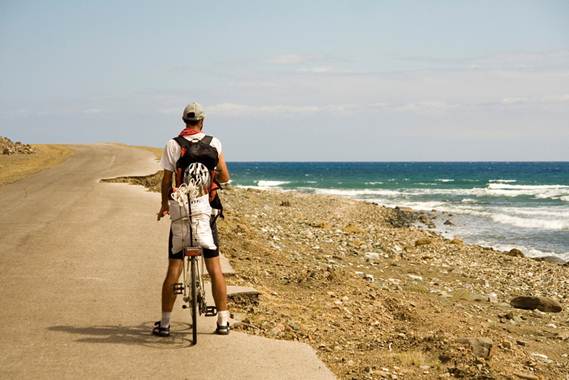
Fifteen
years ago, I was in one of the first groups to explore a similar region off
Cuba’s southern coast
After omelettes and powerful coffee at
5.30am, our group of seven fanaticos crams into the minibus, and we’re away up
the causeway towards the dock. Great vistas of mangrove keys stretch out on
either side, lacing the salt breeze with their medicinal tang. Even at dawn,
the weather is unsettled: a flamingo cloudscape to the east suggests we will
not get the clear, sunshiny conditions we require for sighting our quarry, but
of course we are brimful with optimism. If anglers ever stopped being
idealists, they would end up in the bughouse. At the thatched cabin, there
ensues a frenzy of tackling up our guide Yoandry (a former coastguard and, at
27, the same age as James) helps us assemble my collection of six rods. and
before long his sleek Mitzi skiff scooting out to sea, the outboard sending up
a proud rooster-tail of spray.
On his first morning we are aiming to
introduce my son to Albitta vulpes — the ‘pale fox’, or bonefish. Many
sportsmen regard this as the ideal quarry, and certainly it’s my favourite:
handsome, wary and powerful, ‘bones’ leave their deep-water refuge once the
tides begin to flood the shallows, and eagerly graze on the crustacea flushed
out of the substrate. Sometimes they cruise the mangrove carousels, snacking
off the tiffin sheltering in these tidal forests: at other times you see them
scurrying across the open marl and pouncing on their prey. Large bone dogs are
solitary (anything over 10lb is a world-class specimen), but the smaller chaps
often travel in schools. Either way, they are exceedingly hard to spot. Their
mirrored flanks give them chameleon-like powers, and often you just discern an
innuendo of their presence - a puff of silt, a wink of fin, the faintest
ruffle of wake. Small wonder they are nicknamed the ‘grey ghost of the flats’.
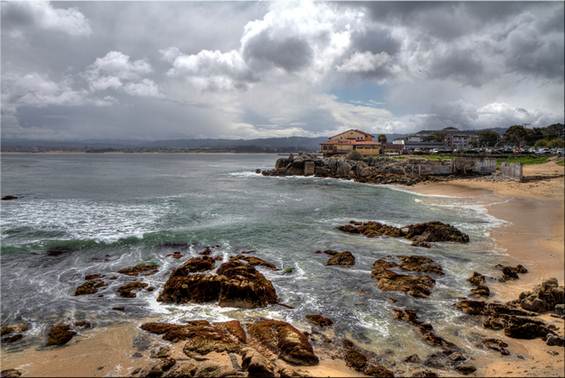
Even
at dawn, the weather is unsettled
Whether wading or standing in the bow of
the boat, when you do target a bonefish you must be stealthy. The careless
clatter of a flybox, or scrunch of the guide’s push pole, will have old Houdini
Fins zigzagging away like snipe off a marsh. You should be prepared to make
long, delicate presentations at short notice, and often into the wind – harder
than it sounds, when there’s loose line to manage, the sun is broiling down and
you’ve contracted a serious case of ‘fin fever’ from all the adrenalin in your system.
James, who had just had one casting lesson back home, settled into the rhythm
with a natural athlete’s skill. Whereas, Dad was frequently unpicking knots of
Gordian intricacy, tangled in the mangroves and muttering in Desperanto. At one
stage, the insolent youth even advised me to ‘chill’ — and to think I used to
change his nappies.
When it does all come together, and a
bonedog feels the Judas kiss of your hook, he streaks in a halogen blaze for
the next parish. All engine and no hull, for his size this must be the
mightiest fish that swims. Bring him finally to hand, and you are cradling an
aquadynamic creature sculpted out of moonlight. He has little turquoise details
along the fins, a glassed in eye, and an underslung mouth that makes him look
like a genteel Morningside auntie cooling her soup spoon. If you hook a dozen
of these beguiling fish in a day, you will have had great sport. Out here they
average a good four pounds apiece, and I think of every one as a trophy.

He
has little turquoise details along the fins, a glassed in eye, and an
underslung mouth that makes him look like a genteel Morningside auntie cooling
her soup spoon.